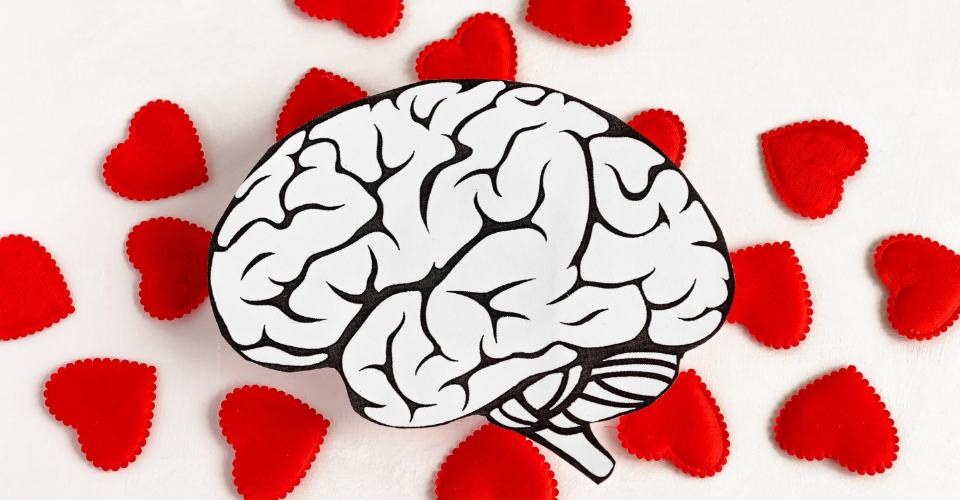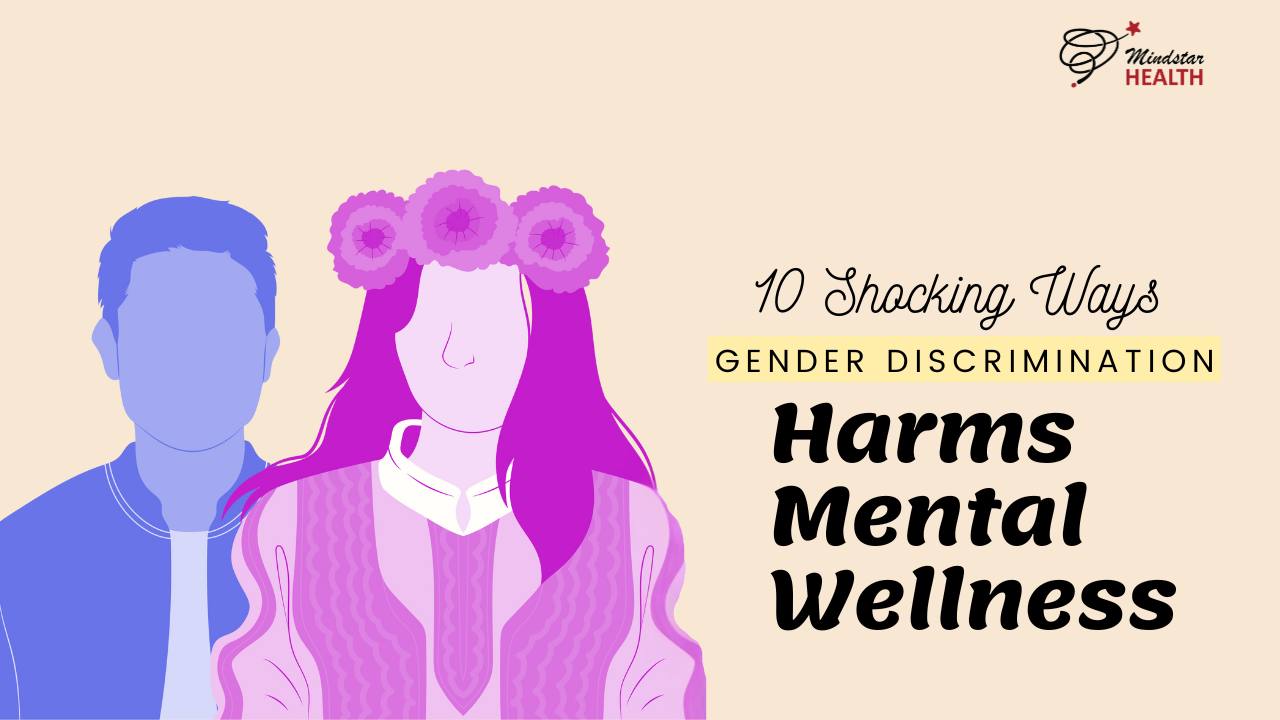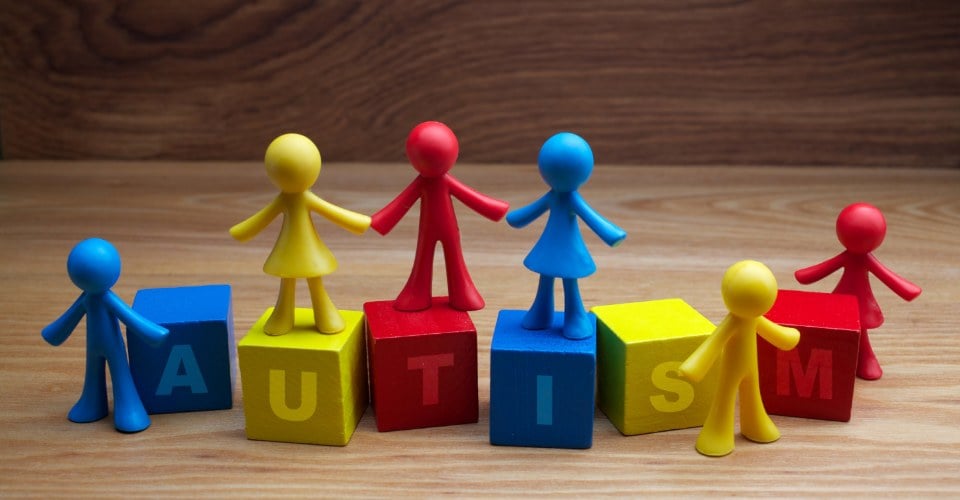Valentine’s Science: Top 5 Ways Romance Affects Your Brain
Have you ever thought about someone you love and felt your heart race?
That feeling isn’t just emotional; it’s a chemical reaction in your brain. When you experience love, your brain releases specific chemicals known as “love hormones.”
These hormones create strong reactions that influence your emotions and behavior. This Valentine’s Day, consider the science behind these hormones and their impact on your feelings.
5 Ways Romance Affects Your Brain
1. Dopamine: The Feel-Good Hormone
Dopamine plays a key role in regulating mood, motivation, and pleasure. It surges when we experience positive emotions, like seeing a loved one or receiving a romantic gesture. This chemical is released in response to pleasurable activities, achievements, and social interactions, making it essential for our feelings of love and happiness.
In passionate love, dopamine is responsible for the initial rush of attraction, often called the “honeymoon phase.” Its influence continues throughout romantic relationships, shaping our emotions and thoughts.
The Science Behind Dopamine
Dopamine is part of the brain’s reward system. It activates pleasure centers when we engage in enjoyable activities. A 2005 study by neuroscientists found that people in romantic relationships showed increased activity in brain areas linked to reward and pleasure when viewing images of their partners. These areas, known as the ventral striatum, also activate during other pleasurable experiences, like eating favorite foods or listening to music.
This explains the happiness and excitement we feel when we see someone we love. In love, every interaction—whether a smile or a text—can trigger dopamine release, enhancing joy and reinforcing emotional attachment. The more dopamine is released, the stronger the connection becomes.
Dopamine plays a crucial role in our emotional lives, especially in romantic relationships.
- It activates pleasure centers in the brain, creating feelings of happiness and satisfaction.
- Research indicates dopamine levels rise when we think about or see someone we love.
- This neurotransmitter enhances emotional attachment to romantic partners.
Dopamine’s influence is significant throughout the stages of love.
- In the early phases, its effects are pronounced, but it continues to shape relationships over time.
- Couples who engage in activities that boost dopamine—like exercising together, sharing new experiences, or laughing—report more satisfying and stable relationships.
- These shared moments elevate dopamine levels, fostering happiness and strengthening the bond.
However, dopamine also contributes to the emotional rollercoaster of passionate love.
- The brain’s reliance on dopamine can create intense pleasure when in love.
- Conversely, separation or conflict can lead to withdrawal symptoms, as dopamine levels drop.
- This drop explains the longing lovers feel when apart, resulting in emotional imbalance.
Key takeaways:
- Shared activities boost dopamine and strengthen emotional bonds.
- Dopamine influences both the highs of new love and the challenges of separation.
- Low dopamine levels can lead to feelings of withdrawal and instability in relationships.
The Role of Dopamine in Love and Brain Health
Dopamine plays a critical role in brain health. High dopamine levels can enhance mood and cognitive abilities. However, long-term imbalances can lead to mental health issues.
An overactive dopamine system may result in conditions like addiction or obsessive-compulsive disorder, leading to compulsive behaviors and emotional dysregulation.
On the other hand, low dopamine levels are linked to depression, apathy, and lack of motivation. Maintaining a healthy dopamine balance is essential, particularly in romantic relationships.
Engaging in love and affection can naturally elevate dopamine levels, promoting emotional well-being and supporting brain health.
Key points about dopamine and brain health:
- Imbalances can lead to addiction and depression.
- Healthy levels are vital for mental well-being and cognitive function.
- Romantic relationships can help sustain healthy dopamine levels, enhancing overall brain health.
Statistical Data: Dopamine’s Impact on Love
Dopamine significantly impacts love and attraction.
Research indicates that when people view photos of their romantic partners, their dopamine activity increases. This surge correlates with feelings of pleasure and happiness.
In the early stages of attraction, dopamine levels are at their highest. As relationships develop, these levels decline, but dopamine still affects overall relationship satisfaction.
Key findings on dopamine’s role in relationships:
- It reinforces positive behaviors like affection and communication in long-term partnerships.
- Increased dopamine activity occurs when looking at romantic partners, enhancing feelings of happiness.
- Peak dopamine levels happen during initial attraction, influencing long-term satisfaction.
Understanding these dynamics can help you navigate your own relationships more effectively. How do you think dopamine influences your connections?
2. Norepinephrine: The Excitement Chemical
Norepinephrine plays a key role in the brain when we experience love. It triggers physical symptoms linked to romantic excitement.
You might feel “butterflies” in your stomach when you’re around someone you like.
Consider these common reactions:
- Racing heart
- Sweaty palms
- Scattered thoughts
These sensations stem from norepinephrine’s influence.
Often referred to as the “excitement chemical,” norepinephrine is part of a broader system in the brain that reacts to emotional arousal.
During passionate love or intense attraction, norepinephrine surges, impacting your behavior and physical sensations.
Interestingly, this neurotransmitter also contributes to the body’s “fight-or-flight” response. This connection explains why you might feel nervous or anxious in the early stages of a relationship.
How do you manage these feelings when they arise?
The Role of Norepinephrine in Love
Norepinephrine plays a significant role in romantic relationships, primarily through its connection to arousal.
When you experience passionate love, norepinephrine is released, enhancing your awareness of the person you’re attracted to. This intensifies your perception of their looks, voice, and presence.
Norepinephrine contributes to the electrifying feelings often associated with new romantic interests.
Here are some physical signs linked to norepinephrine during love:
- Racing heart: Norepinephrine increases your heart rate, creating that pounding sensation when near someone special.
- Sweaty palms: This reaction is common and stems from the excitement of romantic moments.
- Shaky hands or jitteriness: The hormone can cause tremors, reflecting your heightened state of arousal.
- Increased focus and energy: Norepinephrine sharpens your attention and boosts energy, explaining why you feel particularly alert when spending time with someone you’re infatuated with.
Consider how these physical responses impact your interactions. How do they shape your experiences in romantic situations?
Norepinephrine and the Nervousness of New Love
Norepinephrine plays a key role in the intense feelings associated with love. It fuels excitement and passion but can also lead to anxiety in new relationships.
During the early stages of attraction, you might feel nervous about how your partner perceives you or whether your feelings are mutual. This anxiety stems from norepinephrine’s impact on your brain.
Research indicates that elevated norepinephrine levels can trigger a “hyper-alert” state, resulting in emotional instability. A 2005 study in Psychopharmacology found that people experiencing early romantic attraction often show increased norepinephrine levels. This increase correlates with heightened anxiety and emotional sensitivity.
The thrill of getting to know someone new can amplify these feelings, creating a mix of emotions that makes love both exhilarating and overwhelming. How do you navigate these intense feelings in your own relationships?
Norepinephrine’s Long-Term Impact on Brain Chemistry
Norepinephrine plays a significant role in the early stages of romance and how love develops over time.
At first, the intense arousal and excitement from norepinephrine help create a bond between two people. As a relationship matures, norepinephrine levels may decrease. This shift allows hormones like oxytocin and vasopressin to take over, which are linked to bonding and commitment.
The transition from the “honeymoon phase” to a stable relationship involves changes in brain chemistry. As the thrill of passionate love fades, norepinephrine’s influence gives way to hormones that promote deeper emotional connections. This evolution is a natural part of relationships and illustrates how our brain chemistry shifts over time.
The Fine Line Between Excitement and Anxiety
Norepinephrine can spark delightful excitement in love, but it can also lead to stress and anxiety. The intense feelings it triggers in early romance are not always positive. While they can create exhilaration, they can also cause feelings of being overwhelmed or uncertain. This dual nature of norepinephrine explains why new relationships often feel like an emotional roller coaster.
Maintaining a balance in norepinephrine levels is crucial for healthy love. Excess norepinephrine can result in emotional instability or stress, while insufficient levels can reduce romantic intensity. Understanding norepinephrine’s role helps us grasp the complexity of emotions in love, offering insight into how our brains manage the thrilling and sometimes overwhelming journey of romantic relationships.
3. Serotonin: The Mood Regulator
Serotonin is known as the “feel-good” neurotransmitter. It plays a key role in regulating mood, emotions, and brain chemistry. This hormone influences how you feel about yourself, others, and your environment. In romantic relationships, serotonin significantly impacts passionate love, attachment, and emotional well-being.
Research indicates serotonin affects emotional regulation and stability. It fosters feelings of happiness, calmness, and contentment. Interestingly, when you fall in love, serotonin levels may drop, leading to unique emotional experiences.
The Love-Serotonin Connection
During the early stages of a relationship, your brain chemistry changes. Serotonin levels often decrease, which can lead to intense and sometimes obsessive thoughts about your partner. This drop in serotonin can create infatuation but may also result in negative effects like anxiety or obsession.
Studies show that those newly in love may display symptoms similar to obsessive-compulsive disorder (OCD). This includes an inability to stop thinking about their partner or excessive focus on the relationship. This obsessive thinking correlates with lower serotonin levels. Some research suggests that serotonin levels in early-stage relationships resemble those in individuals facing emotional distress. This connection explains why love can feel overwhelming or anxiety-inducing.
Serotonin’s Impact on Brain Chemistry and Behavior
Serotonin influences mood and emotional stability, but it also affects behaviors tied to love and attachment.
- It regulates feelings of jealousy and possessiveness, common in passionate love.
- Low serotonin can lead to anxiety and uncertainty in relationships. This may result in behaviors like constant texting or feeling uneasy when apart.
Serotonin’s impact extends beyond the early stages of a relationship.
- As relationships mature, serotonin fosters long-term contentment.
- After the initial infatuation fades, it helps maintain emotional balance and stability, supporting a secure connection.
Research shows that individuals in stable, happy relationships often have regulated serotonin levels.
- This suggests serotonin contributes to emotional well-being and lasting affection.
- People in these relationships report feeling grounded and better equipped to handle conflict, highlighting serotonin’s role in mental and emotional health.
How do you think your serotonin levels affect your relationships?
Serotonin and Long-Term Relationship Health
Maintaining healthy serotonin levels is crucial for brain health and nurturing long-term relationships. Balanced serotonin helps partners feel secure, communicate openly, and tackle challenges together. Its role in mood regulation aids individuals in managing the ups and downs of any relationship.
Serotonin’s effects extend beyond romantic connections. Strong friendships, family ties, and acts of kindness can also trigger serotonin release, emphasizing its broader impact on emotional well-being. This indicates that serotonin is vital not only for passionate love but also for sustaining positive emotional connections with others.
Statistical Insights into Serotonin’s Role
- Studies indicate serotonin levels can drop by up to 30% in individuals newly in love compared to those in stable, long-term relationships.
- Research in the Journal of Neurochemistry shows that low serotonin levels in early love stages can lead to obsessive thinking about a partner.
- The American Psychological Association links serotonin imbalances to mood disorders like depression and anxiety, which can worsen with the stress of new relationships.
Serotonin significantly influences how we experience and regulate emotions over time. It contributes to the excitement of love while also stabilizing emotional health. Understanding serotonin’s impact on brain chemistry helps us appreciate the connection between our emotional experiences and brain function.
4. Oxytocin: The Bonding Hormone
Oxytocin, known as the “cuddle hormone,” is vital for forming and maintaining emotional bonds.
It releases during physical closeness—hugs, kisses, cuddles—fostering trust and connection. This hormone is crucial in romantic relationships, social interactions, and family ties, influencing human behavior significantly.
During childbirth and breastfeeding, oxytocin helps mothers bond with their newborns. It creates a deep emotional connection essential for nurturing. In romantic partnerships, it strengthens emotional ties and fosters intimacy.
How Oxytocin Affects Brain Chemistry and Thinking
Oxytocin profoundly impacts brain chemistry. Its release affects areas related to emotion regulation, social bonding, and stress reduction. Key areas include:
- Amygdala: Processes emotions.
- Prefrontal Cortex: Involved in decision-making and social behavior.
Oxytocin contributes to feelings of comfort, safety, and emotional stability in relationships.
Research indicates oxytocin reduces stress by lowering cortisol levels, the hormone linked to stress responses. This calming effect supports individual brain health and nurtures healthy relationships. Couples who engage in regular physical touch—like hugging or holding hands—often feel more connected and emotionally secure, thanks to oxytocin’s influence on brain chemistry.
Oxytocin’s Role in Passionate Love
Oxytocin plays a significant role in passionate love. During intimate moments, like sex, oxytocin levels increase, fostering feelings of affection and closeness. This hormonal surge is essential for deepening emotional bonds, helping couples move from infatuation to lasting commitment.
By creating strong emotional connections, oxytocin enhances the pleasure of intimacy and builds a foundation of trust and care necessary for long-term romance.
Oxytocin also influences how you perceive your partner. It encourages positive feelings and diminishes negative emotions, such as jealousy and insecurity. This nurturing environment allows both partners to feel valued and understood, leading to a more harmonious relationship.
In short, oxytocin is crucial in the brain chemistry of love. It helps transform passionate love into meaningful connections by fostering emotional intimacy, trust, and security.
5. Vasopressin: The Commitment Hormone
Vasopressin is another key hormone in love, often called the “commitment hormone.” It plays a vital role in fostering long-lasting romantic relationships. While oxytocin is released during nurturing moments, vasopressin is linked to behaviors that promote enduring attachments, such as loyalty and emotional bonding between partners.
The Role of Vasopressin in Romantic Bonds
Vasopressin plays a crucial role in brain health for those in committed relationships. It works with oxytocin to foster long-term emotional and physical bonds between partners. This hormone is vital for relationship stability, influencing behaviors such as caregiving, protection, and loyalty.
Vasopressin and Relationship Stability
Research indicates that higher vasopressin levels correlate with more stable, enduring relationships. A study in Nature Reviews Neuroscience highlights the connection between vasopressin receptors in the brain and relationship satisfaction. This hormone enhances feelings of security, trust, and a desire for lasting connections.
- Loyalty and Attachment: Vasopressin strengthens the bond between partners, deepening loyalty and emotional ties.
- Protective Behaviors: It encourages individuals to be more protective and attentive, creating a secure environment.
Vasopressin and Brain Chemistry
When released, vasopressin interacts with brain areas linked to social behavior and emotion. This interaction is essential for nurturing healthy relationships. How do you see the role of hormones in your own relationships? Sponses and attachment behaviors, which explains why vasopressin is associated with long-term commitment in romantic relationships.
Vasopressin is important for bonding, especially in the early stages of a relationship. Its influence doesn’t stop there; it continues to shape how we connect with our partners over time.
People with higher vasopressin levels tend to show more nurturing behaviors. They provide care and support, which are essential for keeping love alive and ensuring emotional stability.
By understanding vasopressin’s role in love, you can see how brain chemistry affects the strong bonds we create. This knowledge reveals how our feelings about love can influence our thoughts and actions, ultimately affecting how long our relationships last and how satisfied we feel in them.
Key Takeaways
- Dopamine creates feelings of happiness and excitement when in love.
- Norepinephrine causes physical symptoms like a racing heart and nervousness.
- Serotonin helps regulate mood, but can decrease in the early stages of romance.
- Oxytocin fosters deep emotional bonds and feelings of security.
- Vasopressin strengthens long-term attachment and commitment.
At a Glance
Romance isn’t just about emotional connection—it’s a scientific process involving the release of love hormones in our brain. These hormones—dopamine, norepinephrine, serotonin, oxytocin, and vasopressin—create the euphoric and lasting feelings we associate with love. Understanding how they work helps us appreciate the powerful effect romance has on our brain and mental health.
FAQs
Q: What are love hormones?
Love hormones are chemicals released in the brain that play a role in emotions and bonding during romantic relationships.
Q: How do love hormones affect my brain?
These hormones influence feelings of happiness, excitement, trust, and attachment, which shape how we experience love and relationships.
Q: Can love hormones affect my mental health?
Yes, while love hormones can create positive feelings, imbalances in their levels can also lead to anxiety or mood swings, especially during the early stages of a relationship.
Conclusion
Love truly is more than just an emotion—it’s a powerful force that affects our brain chemistry. From the initial rush of excitement to the deep emotional bonds that form over time, love hormones shape our experiences in profound ways. So, this Valentine’s Day, whether you’re single or in a relationship, remember that your brain is playing a key role in all those butterflies and warm feelings of connection. Understanding these chemicals can help us appreciate the science of love and maintain healthier, more fulfilling relationships.





















Leave a Reply
You must be logged in to post a comment.